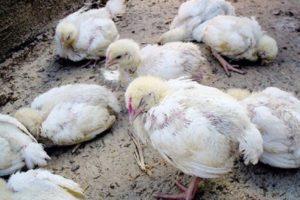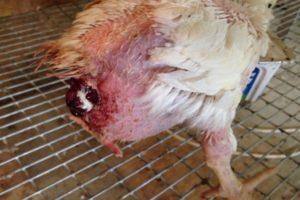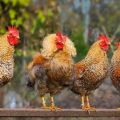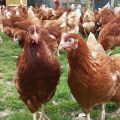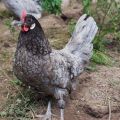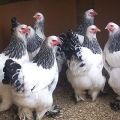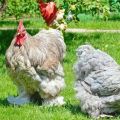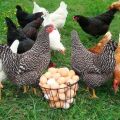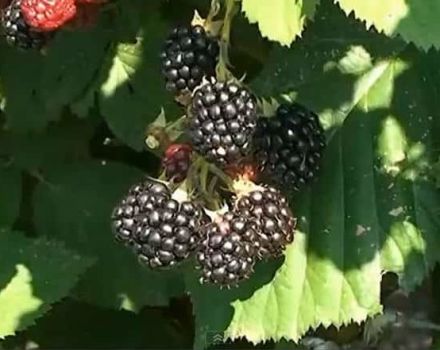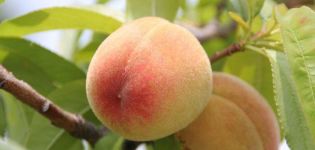Why chickens rush badly in winter, what to do and how to feed for better egg production
Many farmers are wondering: why don't chickens fly in winter? Every household owner wants to receive eggs all year long. However, this requires the fulfillment of a number of conditions. To increase the productivity of birds in winter, it is worth choosing the optimal temperature regime, controlling the duration of daylight hours, and providing the birds with proper nutrition.
Possible reasons why chickens may stop laying in winter
A decrease in the productivity of chickens in winter is considered a completely natural process for many birds. Egg breeds run poorly. The seasonal factor influences the biological rhythms of chickens indoors. However, the farmer may well influence the functioning of the bird's body. To do this, you need to take into account the unfavorable factors that lead to a decrease in egg production.
Water scarcity
Chickens cannot lay in a lack of fluid. This is due to the lack of reserves for the formation of proteins and yolks. It is important that the drinker is always full. It is imperative to control the purity of the water. If the liquid is rotten, the birds try not to drink it.
On average, a chicken drinks 1 glass of water per day. At elevated temperatures, the amount doubles. It is desirable that the liquid is cool - about 15 degrees. Otherwise, there is a risk of thermoregulation disturbance.
Air temperature
Low temperatures lead to a decrease in egg production. In a cold room, more serious problems may appear - pneumonia, rhinitis and other pathologies. Therefore, in winter, the chicken coop must be insulated.
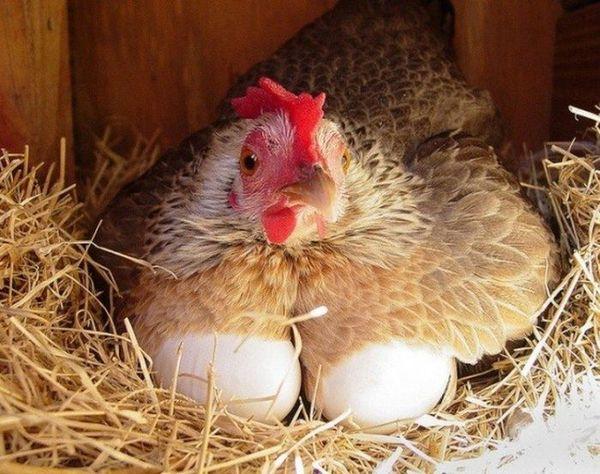
Light mode
For chickens, daylight hours are of great importance. Birds get up with the first rays of the sun, and lie down with the last. In summer, daylight hours lasts long enough, and therefore there is no need for artificial lighting. With a decrease in the length of the day, chickens need additional lighting.
From February, the length of the day increases significantly, and additional lighting is not required. Full lighting and insulation of the chicken coop will help to get a sufficient number of eggs in winter.
Stressful situations
To produce many eggs, the chickens should be as calm as possible. If the birds have been moved to a new location, they will not lay for the next 2 weeks.Also, the cause of stress can be the introduction of new birds, harsh sounds or a change in the walking area.
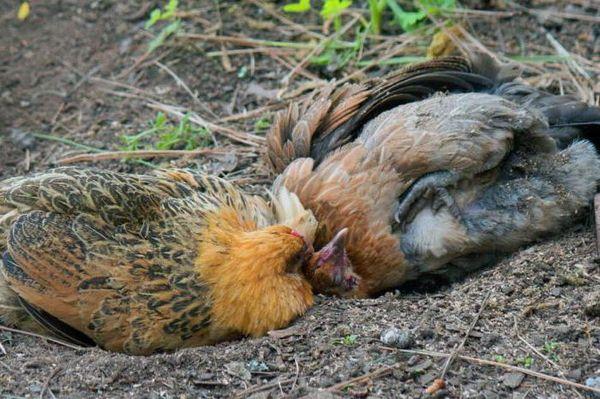
Sometimes the lack of eggs is due to a lack of feed. Prolonged fasting is also stressful for the body.
Fatigue
With a decrease in productivity, ordinary fatigue can be suspected. In this case, the chicken rests for several days, after which egg production is restored. There is no need for additional stimulation.
The diet
In winter, chickens do not get juicy green fodder. In such a situation, they are deficient in certain vitamins. This provokes a decrease in the productivity of chickens.
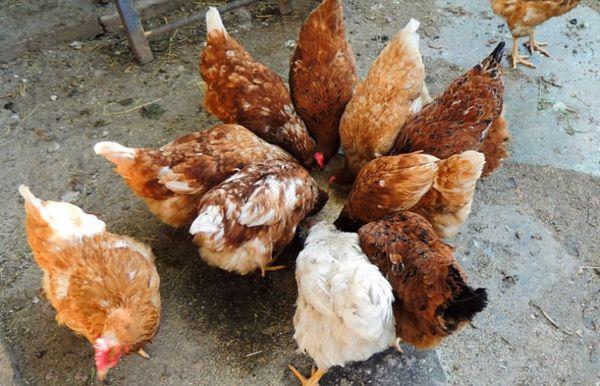
Changing the clutch of eggs
Sometimes the absence of eggs does not indicate difficulties with egg production. Some chickens spontaneously transfer their eggs to a different location that can be difficult to find. Thus, the birds try to protect their offspring.
Seasonal molt
The period of changing feathers requires impressive energy consumption. In such a situation, the birds do not have the strength to produce high-quality egg production. Seasonal molting occurs in October and March. This is a natural process that cannot be influenced. Egg spawning will resume after the feather renewal process is complete.
Diseases
A decrease in productivity can be observed with various diseases. Viruses are especially dangerous for chickens. They can lead to a decrease in productivity over a long period of time.
If the disease cannot be cured, the birds should be destroyed. If possible, the birds are given medications. Eggs should not be consumed until the drugs are removed from the body. To prevent problems, it is recommended to vaccinate chickens on time.
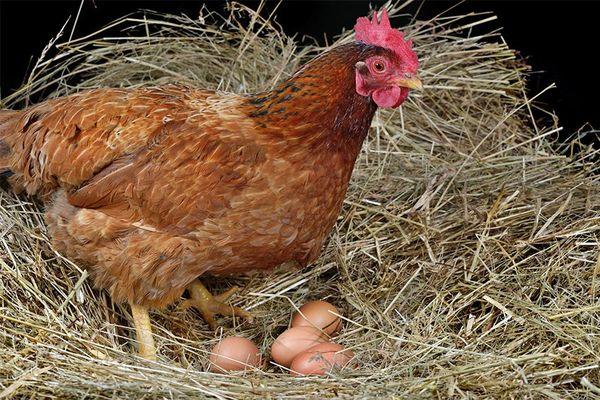
How to treat
To cope with the problem of winter decline in egg production, it is worth taking timely measures.
Nutrition
For better egg production, it is worthwhile to correctly formulate the diet of chickens. To increase the productivity of birds, it is recommended to include the following foods in the diet:
- corn - its grains should be crushed with a crusher;
- wheat - contains a lot of vitamins, proteins and trace elements;
- oat and wheat bran;
- oats - contains a lot of fiber;
- rye, buckwheat, millet;
- legumes, sunflower seeds.
To replenish the reserves of minerals in the body, it is worth giving the chickens table salt, ash, chalk, sand. Fine gravel is used to improve digestion.
Vitamins
Ready mixed feed contains multivitamin components. If you make the food yourself, you should definitely take care of a sufficient amount of vitamins in the diet of chickens:
- vitamin A - present in carrots, cabbage, dandelion leaves;
- vitamins B3 and B12 - found in dairy products;
- vitamin E - present in green grass, especially nettle;
- vitamin B2 - found in beets and greens;
- vitamin B6 - present in meal and sunflower meal.
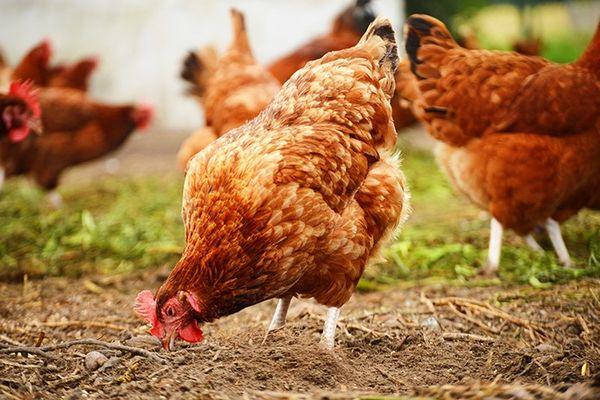
Also, B vitamins are present in fish and meat and bone meal. They are found in wheat germ and barley. Every 3-4 days it is recommended to add fish oil to the birds' feed.
When to see your veterinarian
With a large crowding and an impressive number of layers, the likelihood of developing infections increases. To prevent epidemics, it is worth performing vaccinations and deworming.
In small flocks of birds, it is recommended to strictly follow the rules of hygiene and adhere to the regime. The following pathologies are considered especially dangerous:
- psittacosis - damage to the respiratory system;
- infectious bronchitis;
- mycoplasmosis is a complex pathology that is dangerous for people and birds;
- salmonellosis - contaminated eggs are also dangerous to humans.
Preventive actions
To avoid a decrease in egg production, it is worth observing the necessary preventive measures.
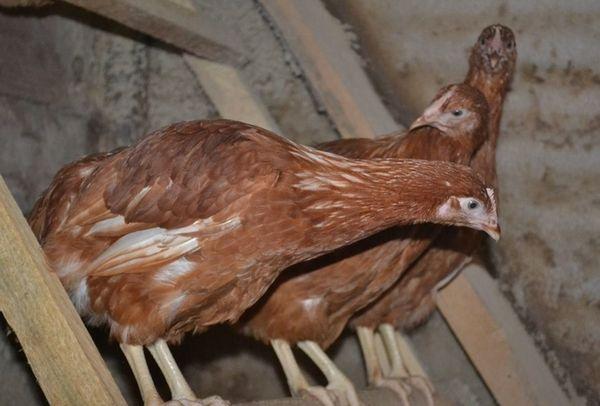
Feed
In winter, chickens require energy-intensive feed.Cereal crops are best suited for this purpose. In the summer, it is recommended to do the following:
- prepare a sufficient amount of wheat, oats, barley;
- purchase a grain crusher;
- buy sunflower cake;
- purchase high-quality compound feed;
- make stocks of green grass;
- prepare shell rock and gravel;
- prepare fish and meat and bone meal.
In winter, chickens should be fed three times a day. In the morning, they are advised to give a cereal mixture. For lunch, use a wet mash. It is made from boiled potatoes and chopped root crops with the addition of sunflower oil cake. In the evening, use whole grains.
The reason for the winter pecking of eggs
Protein deficiency in the body is believed to be the key cause of the problem. This is due to the lack of a balanced diet. To replenish the protein deficiency, it is worth adding fish and meat and bone meal to the diet. The mash should be diluted with yogurt or whey.
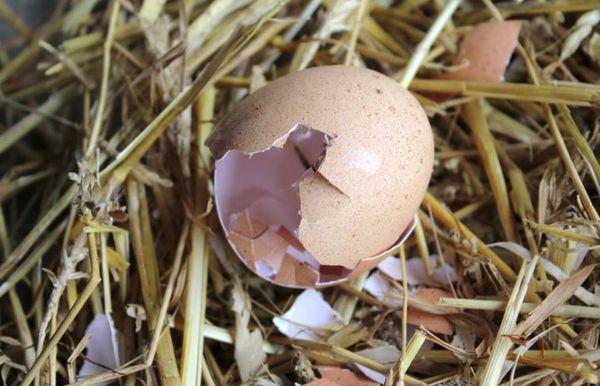
If the chicken is still pecking at the eggs, it is a habit. To avoid spreading the problem, it is worth isolating it from other birds.
Lighting
To increase the length of daylight hours, you need to use artificial lighting. Daylight hours should last 14-16 hours. To achieve such indicators, infrared lamps are hung in the chicken coop. Be sure to fully illuminate the area of the feeders and drinkers. In this case, in the area of \ u200b \ u200bthe nests, the lighting should be dim.
Drinking bowls and walking
In winter, chickens need enough water. In this case, it is important to exclude its freezing. In the cold season, feed contains a large amount of dry ingredients. It takes liquid to digest food.
It is important that the water temperature is comfortable for the birds. Its temperature should be 10-14 degrees.
This will help to expend energy in digesting food rather than heating the body.
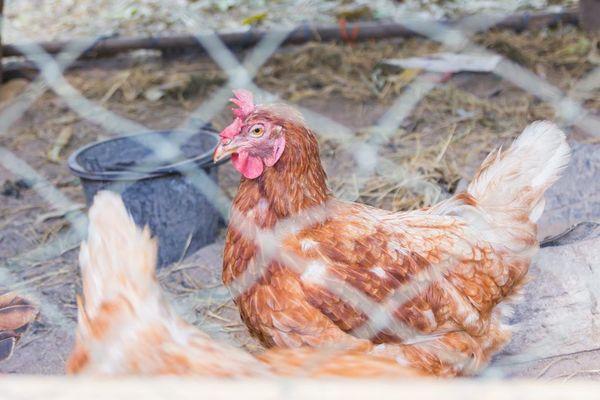
Equally important is the presence of an aviary for walking in winter. You need to make a canopy over it. Also, the site should be protected from bad weather on all sides. To keep the birds' feet from freezing, it is worth using a bedding.
It is important to place boxes filled with sand or ash on this area. Chickens will be able to swim in them, which will help get rid of feather parasites.
In winter, the productivity of chickens inevitably decreases. This is due to the physiological processes in their body. To increase egg production, you need to provide the birds with proper care.
